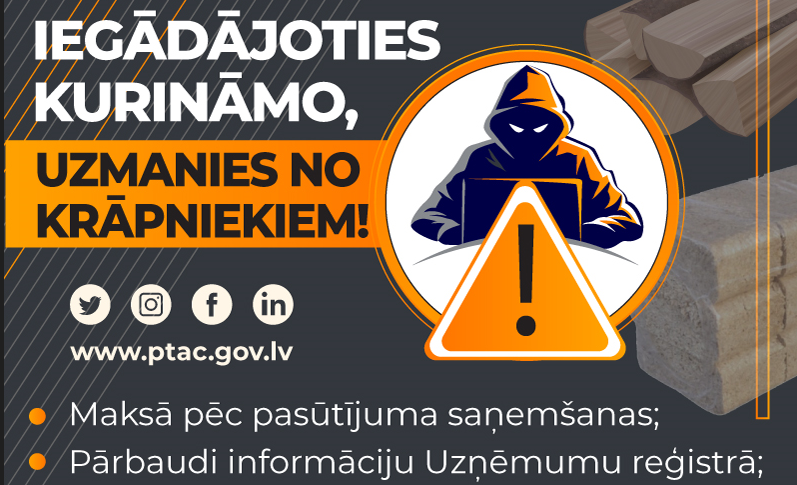CERT.LV cyber security expert Kārlis Svilāns said that one of the most common ways fraudsters try to reach their victims is still via e-mail, and the e-mails sent change quite often. This communication channel will always be one of the main ways fraudsters will try to contact victims, as people actively use e-mail for communication, the specialist explained.
At the same time, fraudsters have also started to use text messages more, because they have learned to change the name of the sender, which is visible to the recipient, so that the possible victim thinks that the text message came from an official institution.
Svilāns, however, emphasized that the methods with which fraudsters 'phish' may change, but the ultimate goal remains the same: to get the victim's bank card data.
Technology expert Elviss Strazdiņš emphasized that often fraud attempts also take place through telephone calls. Fraudsters call, pretending to be bank employees, for example, and try to get personal data. Often, fraudsters are even able to change the number from which the call is made compared to what a potential victim sees displayed on his or her phone.
"Remember that the number that appears on your phone does not mean that a person is calling from this number," emphasized Strazdiņš.
In the past, receiving a call in Russian (Latvian is the only official language of communication in Latvia) would often put people on their guard, but increasingly fraud schemes are operating in Latvian as well.
"People also call in Latvian. It happens very rarely, of course, but all these same schemes can be played out in Latvian. You can't immediately assume [that] scammers usually speak Russian. No, please don't rely on language!" advised Strazdiņš.
Svilāns confirmed that, although it's still the case that more often fraudsters still communicate in Russian, cases of fraud also occur in Latvian.
"It is important to add – when we suspect that a fraudster is calling, at that moment we must immediately hang up the phone and do not continue communication, because the telephone numbers of the victims who are called by these fraudsters are sold and passed on to other fraudsters. Well, this number did not answer me, but this one picked up and hung up after only several minutes. They can mark the number that picked up, that they can potentially scam something from him because he picked up, he's talked a little bit, so you can try to break that person with different communication methods," Svilāns explained.
One of the latest methods by which fraudsters try to lure victims is by sending a text message with the text – "Mom, my phone is broken" – and indicating, for example, an account number to which money can be sent to buy a new phone. It is a new method by which fraudsters initiate communication with the hope of obtaining bank details.
Another method often used by fraudsters once they have gained access to a victim's email address is to send a fake invoice.
"For example, your landlord sends you a bill every month. If someone has access to your Gmail account, they can read all the mail you receive and send you a bill with a different account number the day before your landlord normally sends you a bill. He completely copies the entire e-mail, pretending to be the administrator. Everything looks exactly the same, only the account is different," explained Strazdins.
Therefore, you should carefully protect not only bank data, but also access to your e-mail. Two-factor authentication helps to do this.




























